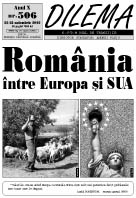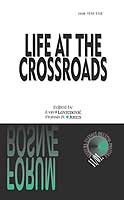
Loialităţi împărţite?
Daniel Dăianu writes an analysis of Romania's perspectives of integration in the European Union and NATO. He suggests that Romania has to make some realistic efforts for becoming a member in the both of these institutions, trying to avoid as many as possible of the internal conflicts and problems. The analyst quotes Donald Rumsfeld, Robert Kagan, Robert Kaplan and Francis Fukuyama.
More...
